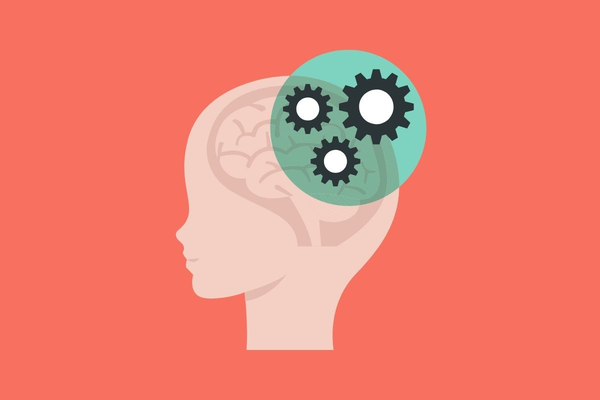Cognitive ability is increasingly important in the workplace, no matter the size or type of your business.
Cognitive Skills, like attention and memory, are the foundation for learning and cognitive ability. Our cognitive strengths and weaknesses impact our success in the workplace and in life. Organisations need employees who can assimilate, process and comprehend information efficiently and effectively.
Today employers are facing several issues that undermine the cognitive capacity of potential employees. Recruitment and HR Managers struggle with candidates who they identified as very promising during job interviews but found they did not perform effectively on the job. To overcome this challenge, many businesses use a cognitive ability assessment as part of the recruitment process due to their power to predict job performance and understand a candidate’s ability to perform in a role.
What is Cognitive Ability?
Cognitive abilities are processes and functions carried out in the brain and are part of nearly all our human actions while we are awake. Cognitive ability is associated with how we remember, process, and react to information rather than the amount of knowledge or intelligence we acquire.
Cognitive ability explains an individuals capacity to reason, plan, solve problems, think abstractly, comprehend complex ideas, learn quickly, and learn from experience. Sometimes referred to as general intelligence, cognitive ability is widely considered the best predictor of job performance. In the workplace, cognitive ability helps you acquire job knowledge, interpret data, remember goals, pay attention during meetings, and many more functions. Strong cognitive skills help you recall previous information and make critical connections between old and new information. By improving cognitive ability, your brain can complete these processes and functions quickly and efficiently.
Can You Improve Cognitive Ability?
Cognitive abilities are the skills we use to carry out any task from the simplest to the most complex. Cognitive skills explain the way that our brain reasons, thinks, stores, and recalls information. Cognitive ability plays a vital role in acquiring new knowledge and relating it to old information in the workplace. As a significant predictor of job performance, the big question is, can you improve cognitive ability? Modern research tells us yes, we can improve cognitive ability.
Research demonstrates that the brain can change, generating new cells, neurons, synapses, and making new connections. All these changes contribute to the development of cognitive function. For example, memory skills rely heavily on parts of the temporal and frontal lobes. People with traumatic brain injuries can experience reduced cognitive skills due to compromised neural networks, so neurological rehabilitation is vital for these patients. When we acquire new knowledge, engage in new activities, or consider a new concept, the brain will rewire itself generating new connections in response to these activities. Adults can keep expanding their cognitive ability and protect cognitive functioning as they age.
Developing cognitive skills is especially important for the workplace. These skills help you complete cognitive processes more quickly and efficiently, so you recall previous information and make important connections faster and more accurately in your role. If you want to assess your employees’ current cognitive ability level, completing an aptitude test is a great way to understand their current skill level and identify development opportunities.
How to Assess Cognitive Ability
A cognitive ability test is a great way to assess cognitive ability. A cognitive ability test measures an employee’s working speed and accuracy relating to thinking and reasoning skills. Candidates with high cognitive ability can generally perform work tasks more accurately and efficiently, make effective decisions, use their reasoning skills to solve problems and respond intelligently to new or complex issues.
Cognitive ability tests measure specific aspects of intelligence, usually involving comprehension of numbers, written or graphical information. The FinxS Reasoning Analysis measures the following areas of cognitive ability:
- Abstract Logical Reasoning – measures an individual’s ability to understand different concepts and identify their interrelationships.
- Understanding Logical Processes – analyses an individual’s ability to understand cause-effect relationships.
- Spatial Reasoning – measures the individual’s ability to comprehend visual entities and their components.
- Understanding Social Context – measures the individual’s general sensitiveness to observe a social phenomenon.
- Numerical Reasoning – measures an individual’s ability to spot relationships and patterns in numerical information.
- Verbal Reasoning – measures a person’s ability to understand written information, conceptualise it and find causal relationships.
- Mathematical Logical Reasoning – evaluates a person’s ability to interpret and criticise statistical information.
- Word Association – measures the ability to rely on written information to understand relationships between different concepts.
- Visual Memory – is the ability to remember and process relevant visual information.
How to Improve Cognitive Ability
There are many things we can implement in our lives to support cognitive function and help improve cognitive ability, including:
- Increase Physical Activity
- Eat Healthy Foods
- Increase Sleep Quality
- Minimise Stress
- Reduce Risks to Cognitive Health
Increase Physical Activity
Physical activity is excellent for brain function and health. Research demonstrates that physical activity is beneficial to improve memory. Getting the recommended amount of physical activity a week can improve cognition and protect the brain against degeneration.
Eat Healthy Foods
Our brain is an energy-demanding organ. Despite weighing a small amount, it consumes up to 20% of the energy available. When we don’t provide the brain with enough fuel, such as skipping breakfast because we slept through our alarm, we can experience a dip in cognitive function. A drop in mental function is not a good thing when our boss needs a project proposal presentation ASAP. Eating foods lacking in nutrients or skipping meals altogether may prevent us from successfully accomplishing several tasks throughout the day.
Increase Sleep Quality
Getting enough sleep each night and entering REM sleep helps the brain consolidate learning and memory. Low sleep quality can reduce the function of essential processes such as working memory matter volume in the brain’s frontal lobe, which helps control critical processes such as working memory and executive functions.
Minimise Stress
Chronic stress and high cortisol levels can damage the brain. Chronic stress triggers long-term changes in brain structure, which may influence cognitive decline.
Reduce Risks to Cognitive Health
Things such as smoking, consuming too much alcohol, and a poor diet can reduce thinking and reasoning skills. This decline in cognitive health can affect our ability to perform everyday tasks in the workplace and at home. Minimising these risks can protect our cognitive function.
How to Improve Cognitive Skills
There are several things we can implement to improve our cognitive skills. Here are the top five ways to improve cognitive skills:
- Brain Training Games
- Solving Puzzles
- Openness to Experience
- Engaging in Creative Projects
- Social Connections




